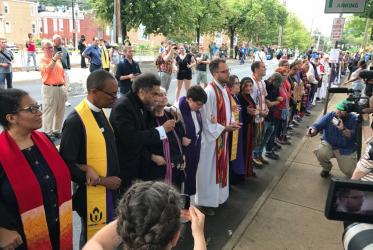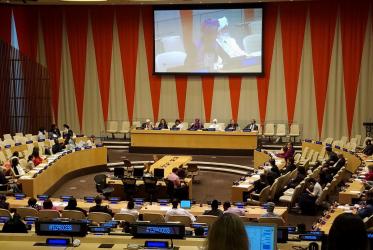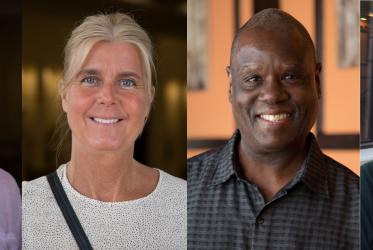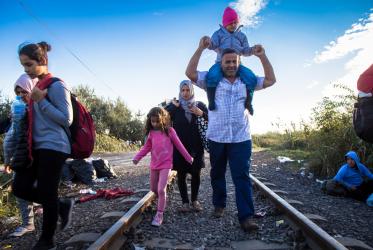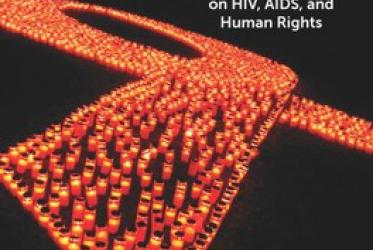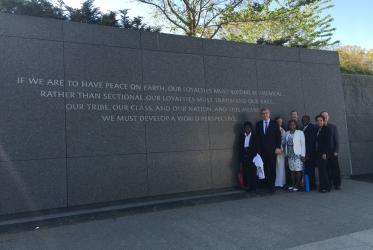Displaying 121 - 140 of 175
31 August 2017
In Charlottesville, can “the power of love” prevail?
14 August 2017
"We have our work cut out for us"
10 August 2017
G20 summit: call to pray for peace in Hamburg
07 July 2017
Peace consultations of hope
07 July 2017
WCC book featured in UN discussion on gender, religions and health
16 September 2016
Creation, unity and hope focus of WCC greeting in USA
06 September 2016
WCC condemns escalating racial violence in the USA
09 July 2016
New Executive Committee members elected in Trondheim
28 June 2016
